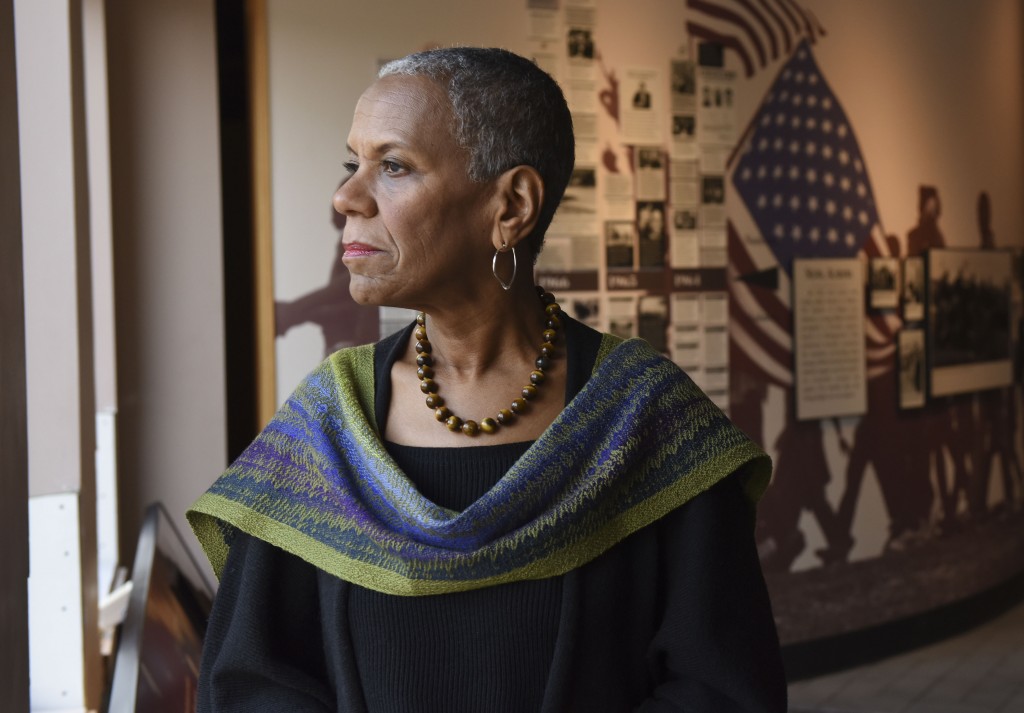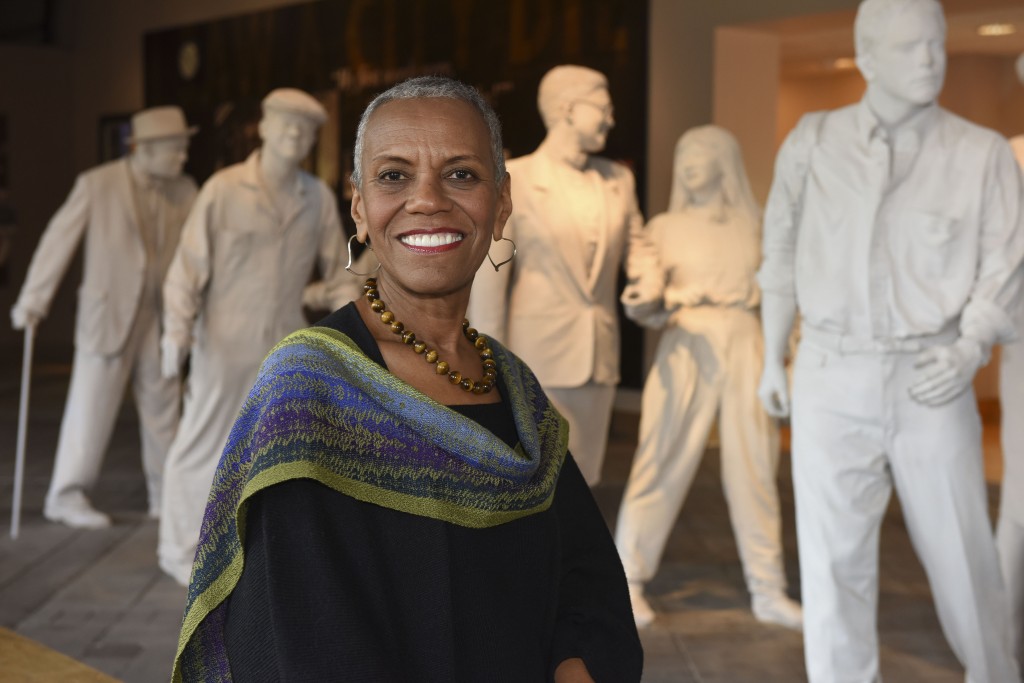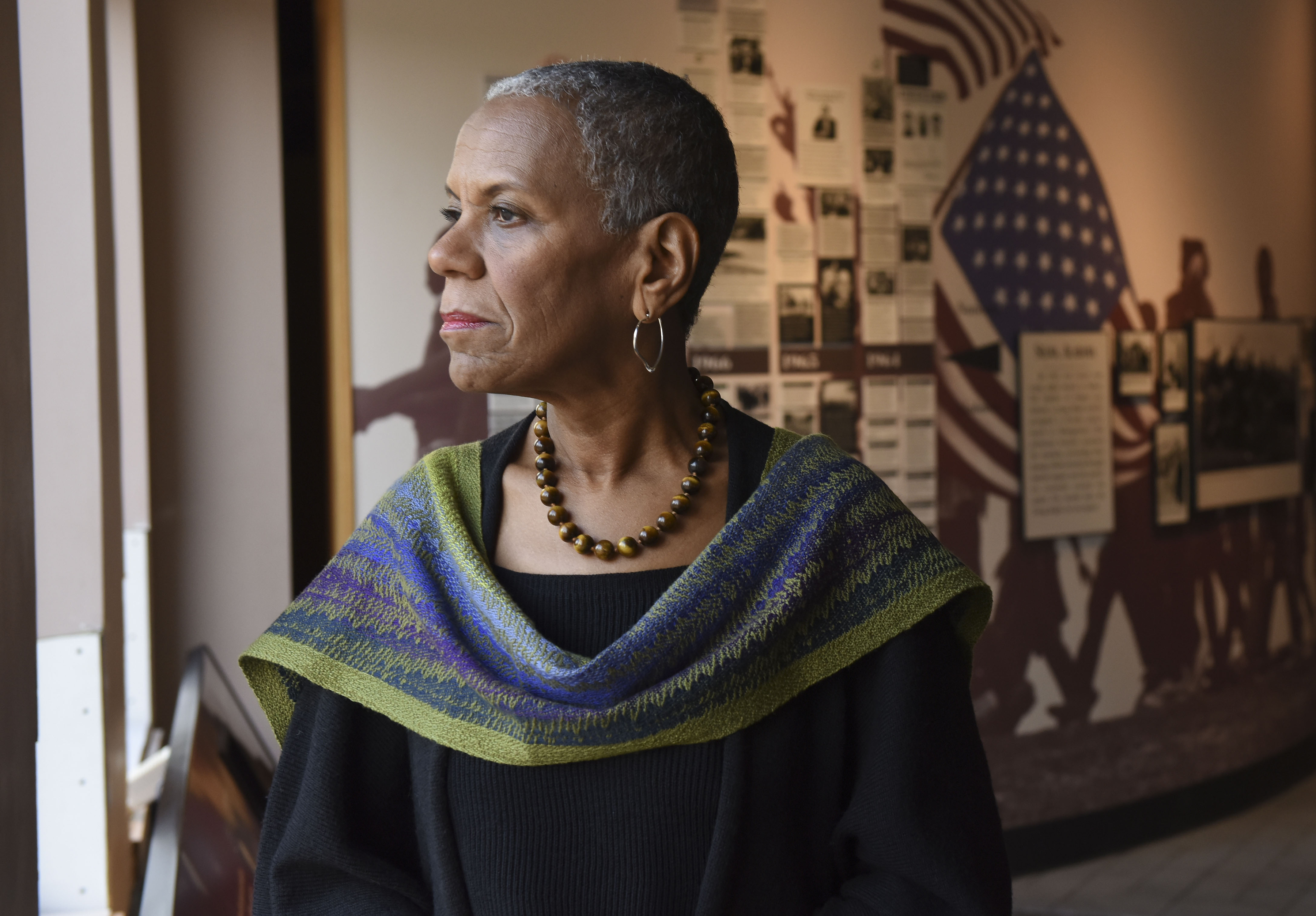By Barnett Wright
Birmingham Times Staff

The view just outside the window is of the historic Sixteenth Street Baptist Church in downtown Birmingham, but the vision goes well beyond one of the city’s most visible landmarks.
Andrea Taylor, president and CEO of the Birmingham Civil Rights Institute, can see the church from her window in her office. She can also see beyond the church to the future of a city that can be among the greatest in the nation — and perhaps the world.
Fulfilling that vision can start simply with a conversation like the one Taylor moderated with four young professionals in January during the 30th Annual Dr. Martin Luther King Jr. Unity Breakfast at the Birmingham-Jefferson Convention Center. Taylor was the keynote speaker and took a “nontraditional approach” to her speech. Instead of standing in front of the audience with prepared remarks, she sat amid the participants and asked, “What is your vision of the future?”
Taylor is a strong advocate of young people and encourages proactive ways to explore opportunities to address challenges.
Presence Felt
Taylor assumed the role at the BCRI in the fall of 2015, and her presence was felt immediately among young and old, black and white, city and suburban folks, corporate and neighborhood leaders.
“It’s a very humbling role to walk into my office every day, open the blinds, and look out at the Sixteenth Street Baptist Church,” Taylor said. “The history of that church, that institution where four little girls died in the 1963 bombing, is a reminder to all of us in Birmingham, across the nation, and around the world of the importance of promoting civil and human rights.”
Sixteenth Street Baptist can help people understand in an ongoing and contemporary way “the importance of preserving the rights of others and making it possible for all people from all communities and all colors to participate in our society and to do so without threats to their safety and well-being,” she said.
Taylor’s first day with the Institute was in September and since then her schedule has been packed with travel, forums, meetings and interviews. Still, she vividly recalls her first visit to the Institute.
“I came in 2012 when I was at Microsoft with the Faith and Politics Institute Civil Rights Pilgrimage led by [Georgia] Congressman John Lewis and [Maryland] Congressman Steny Hoyer,” she said. “Never in my wildest dreams during that visit would I have thought I would be coming back to Birmingham, and certainly not as the president and CEO of this important institution.”
Indeed, Taylor’s professional accomplishments laid the foundation for her leadership of the BCRI. She served as the director of citizenship and public affairs for Microsoft. Prior to that tenure, she created and led national and global grant programs for the Ford Foundation and the Benton Foundation. She also has served as a delegate to four global summits of the United Nations, in Africa, Switzerland, China and Egypt.
Those are among the myriad achievements that appealed to a local search committee looking to replace Dr. Lawrence Pijeaux, who retired from the BCRI in the summer of 2014.
Bobbie Knight, chairman of the board for the BCRI, says of Taylor, “She brings a wealth of senior leadership experience in business, philanthropy and media — skills that are desperately needed at the BCRI at this time in its history. She has a very impressive national and global reach that will help strengthen our impact as we prepare for our 25th anniversary in 2017.”
Odessa Woolfolk, president emeritus of the BCRI, who introduced Taylor during the MLK Jr. Unity Breakfast, told the audience of more than 2,000 that Taylor, as a high school student, attended the March on Washington in 1963; joined picket lines in West Virginia and participated in student takeover of a campus building while in college.

Family Ties
Taylor was attracted to Birmingham and the BCRI because of personal and professional experiences, she says.
“My own life, in many ways, was shaped by the civil rights movement,” she said. “I’m a child of the 60s. I grew up in that era. I came from a family of advocates and activists. In my own work, I have been involved in philanthropy, the media and education. There has always been a line through those activities that has to do with helping people realize their full potential and gain access to opportunities so they can develop and use their skills to contribute to their community.”
Of her family, she says, “My uncle was the president of the NAACP chapter in Charleston, W.Va., for almost 20 years (as an attorney), and he was part of the leadership that organized the bus we took to go to the March on Washington in 1963 when I was a young person.”
Coming to the BCRI was almost a natural for Taylor, who grew up visiting museums around the world.
“My mother believed in travel … because she was an artist, and going to museums was part of her work,” Taylor said. “She was very clever in articulating that she couldn’t teach western art and other art history if she herself hadn’t seen it. So, when I was 11 years old, she and several other professors from [West Virginia State College, now West Virginia State University] organized a trip to Europe.
“I probably went to 30 or 40 museums that summer. As a result, whenever I visit a new city or go to a new community one of first things I do is go to at least one museum. That is something that was instilled in us. My mother believed in lifelong learning.”
Taylor, a former journalist, knows the importance of being an eyewitness to history and did not pass up an opportunity to attend President Barack Obama’s election-night celebration in Chicago’s Grant Park — even though she was in her Seattle, Wash., office on Election Day.
She took a day trip to Chicago to celebrate Obama’s historic election as the 44th President of the United States, leaving her Microsoft office in the afternoon and arriving at Grant Park by 7 p.m. She returned to Seattle the next day for work.
“Everybody in that park that night was just overjoyed,” she recalled. “There was such a sense of disbelief and jubilation and celebration at the same time. It was an interesting demographic. There were black people and white people, young people and old people.”
Get Started
Speaking of the president, one person saw potential in Obama before everyone else — Taylor’s mother, Della Brown Taylor Hardman.
After retiring from teaching, Taylor’s mother moved to Martha’s Vineyard, Mass., where she became a local newspaper columnist, writing about the comings and goings of the seasonal and permanent residents.
“One of the people she had the opportunity to meet was a young politician named Barack Obama, who in 2004 who was running for Senate,” Taylor recalls. “They had a brief chat, and [my mother] came away from that experience convinced that she had met a young man we all were going to hear a lot more about in the future.”
Taylor learned how to “get started” from her mother, who earned a Doctor of Philosophy degree at age 72, after retiring from a lifelong career as an educator.
“She was always in pursuit of more knowledge and more education,” Taylor says. “The reason she said she wanted to get her PhD after retiring from a successful career in college teaching had to do with the fact that she wanted her children, grandchildren, and anyone else who might be interested to know that if you have goals, set goals, and get started on your goals, you can complete and achieve your goals. If you have the capacity, there is nothing stopping you from doing just about anything you want to do — at any age or any stage. That’s a very empowering attitude to have.”
Family focus
Taylor has three adult children — two sons and a daughter — five grandchildren and two daughters-in-law. Two of her children are in banking and one is an educator.
“My focus, at this point and time, is on the five grandchildren,” Taylor says. “I say to the children, I’m done with them. I did all I could to help get them to this point, and I go straight to the grandchildren. We are allies.”




